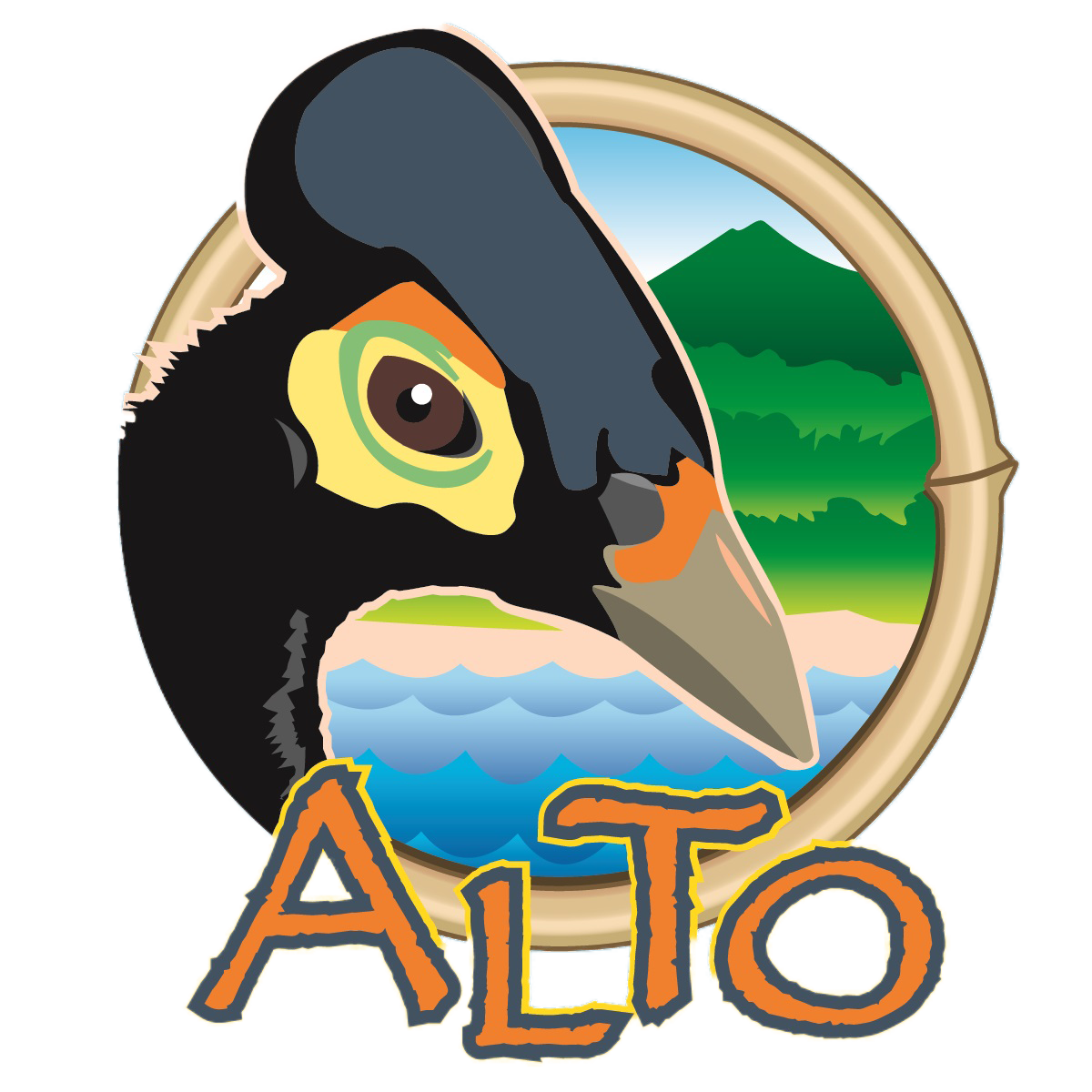Bats
Bats
Essential for forests and fruits
All over the world, bats play a highly important, yet highly underappreciated role in maintaining the health and sustainability of native forests and agricultural systems. AlTo’s field and Awareness programs on behalf of bats seek to conserve native flying foxes (fruit bats) and insectivorous bats in the places where they live, while also helping Tompotikans to understand the priceless services bats provide to humans and other biota–all for free!
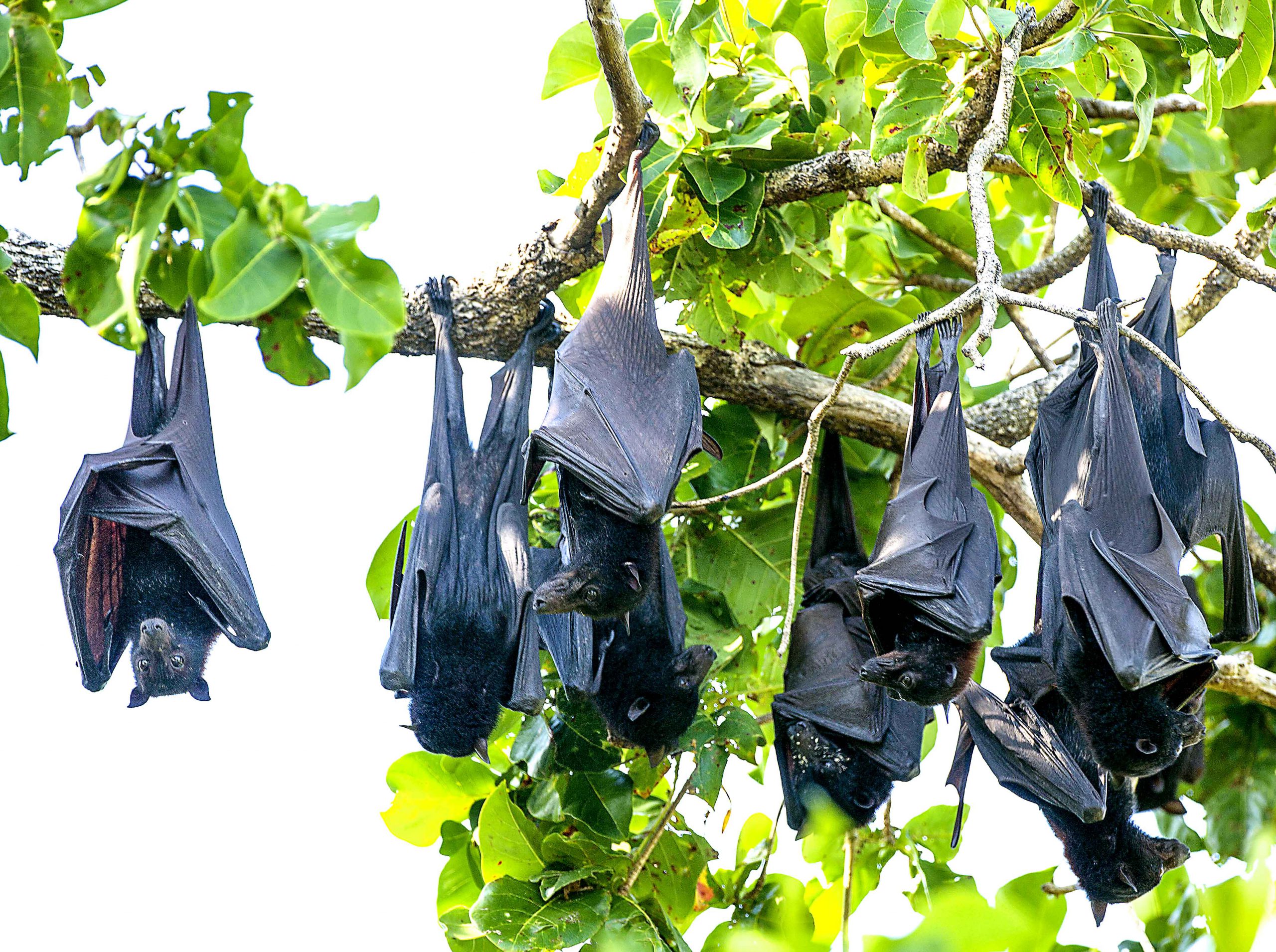
Protecting bats where they live
The Tompotika region is an important center for bat diversity. The island of Sulawesi, of which Tompotika is a part, itself harbors over 70 species of bats, many of them endemic–that is, found nowhere else in the world. Tompotika is also rich with rare karst cave formations, which provide habitat for cave-roosting bat colonies.
The centerpiece of AlTo’s Bat program is the protection of Tangkuladi Island, the daytime roosting home of tens of thousands of flying foxes. Tangkuladi, a 7-hectare (17-acre) uninhabited island off the coast of Taima village, is owned by ten private villagers but has been protected under a conservation lease held by AlTo since 2013. In 2014, the island was also declared an official KKPD (Kawasan Konservasi Perairan Daerah), or local marine protected area, by the regency government.
The bats of Tangkuladi include the endemic Sulawesi Flying Fox (Acerodon celebensis), two subspecies of Black Flying Foxes (Pteropus alecto), and several other smaller species, with total numbers of all species numbering tens of thousands of individuals. These bats are gravely imperiled: although few people eat them locally, prior to being protected by AlTo, commercial hunters were capturing them by the tens of thousands for transport to bushmeat markets in Northern Sulawesi. Falling prey to cruel capture methods that catch and tear their wings with fishhooks, and dying by the hundreds in hot and crowded transport crates, bats captured for the bushmeat trade experience much suffering before their death.
In addition, bats are known to sometimes harbor diseases which, in the stressful and unsanitary conditions of bushmeat markets, can jump to humans and cause deadly zoonotic diseases such as SARS and COVID-19.
Furthermore, since mother bats produce only one offspring per year, bat populations simply cannot withstand the tremendous hunting pressure they were subjected to prior to AlTo’s protection of the island. But in 2014, AlTo and local villagers agreed to work together to protect and patrol the entire Tangkuladi island; since then the bats, sea turtles, and other wildlife that make their home on the island have been safe, and recovering in numbers.
Read more about our conservation efforts on Tangkuladi in the article below:
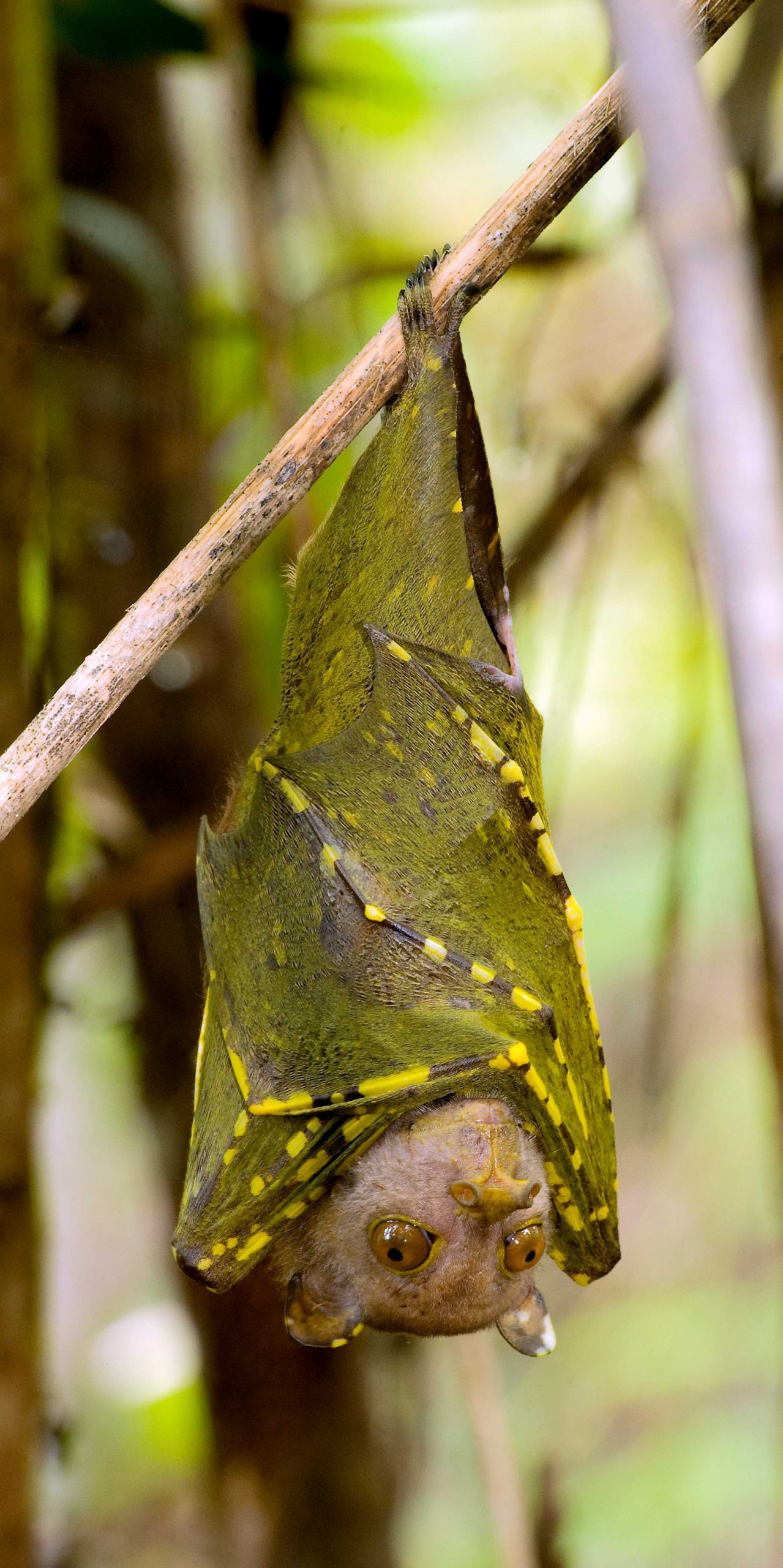
no bats, no durian!
AlTo’s Awareness program is aimed at building long-lasting public support for bat conservation through interactive programs in schools and villages. Most people don’t know, for instance, that the trees of many favorite tropical fruits and nuts, such as mangoes, cashews, wild bananas, avocadoes, and many more, rely on bats for pollination to produce fruit. In fact, the durian tree, source of one of Southeast Asia’s most prized delicacies, can produce fruit only if pollinated by bats. No bats, no durian!
Fruit bats also play a critical role in maintaining the health of Tompotika’s native tropical forests by pollinating trees, spreading seeds to help forests regrow, and by providing high-quality fertilizer. In addition, insectivorous bats keep populations of insect pests, such as the mosquitos that spread malaria or the grasshoppers that destroy rice crops, under control.
With its partners, AlTo has developed various outreach materials in Indonesian that are helping to spread the word about the importance–and the wonders!–of bats.
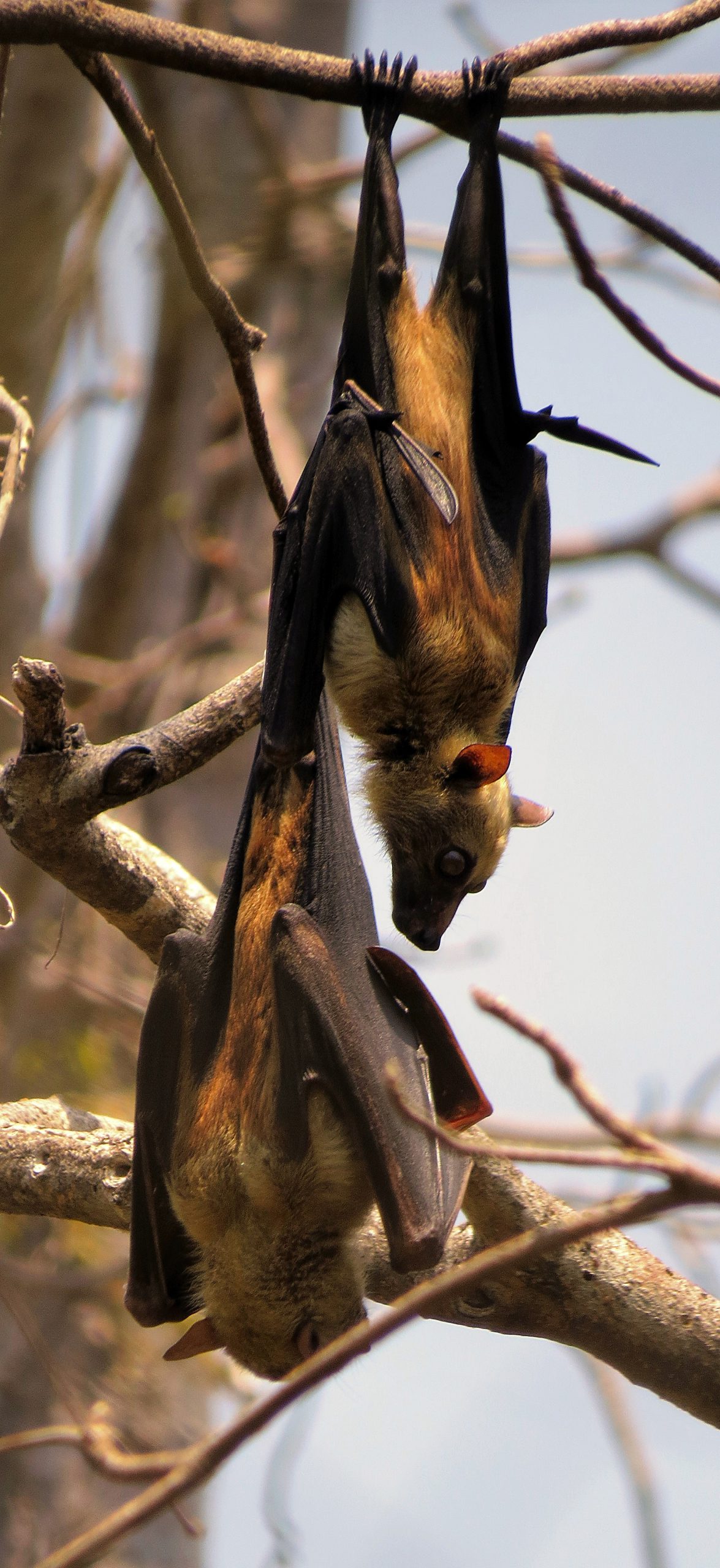
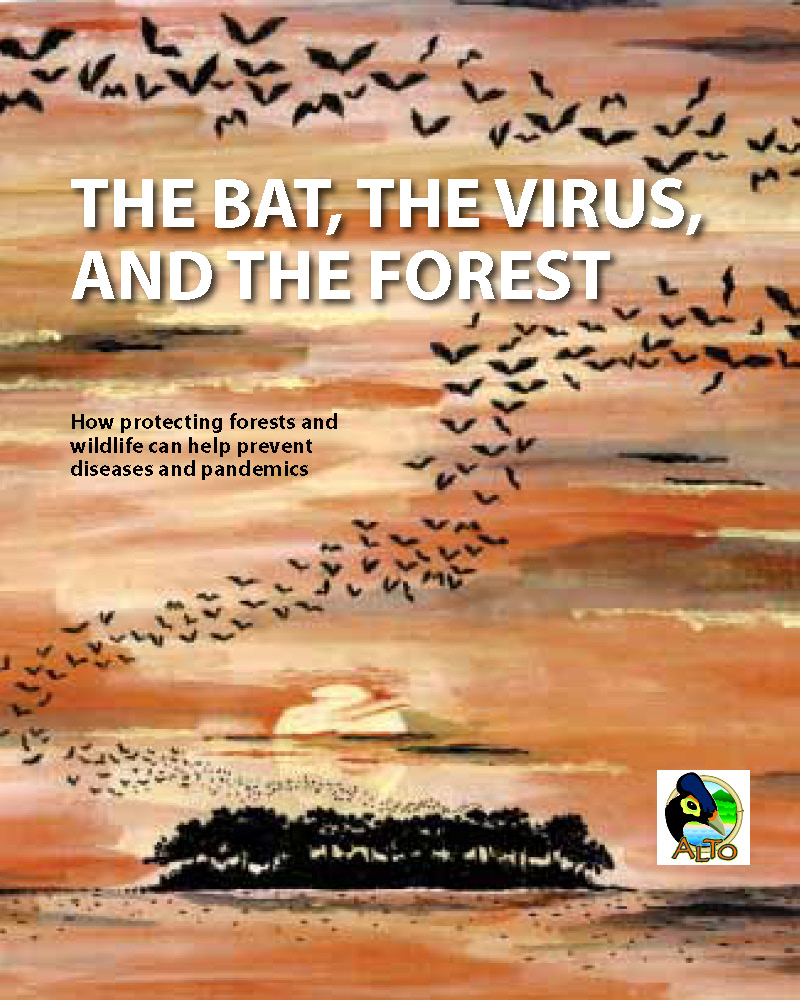
The bat, The virus, and the forest
In 2021 AlTo published an illustrated story book, written in both English and Bahasa Indonesia, highlighting the dangers of bushmeat hunting and consumption, a practice which is still common in areas of Sulawesi. The book was distributed widely in the Tompotika area as well as the United States.
AlTo offers these books for free to anyone who is interested. To receive the book please contact us and let us know how many copies you would like, what they will be used for, and where we can send them. Shipping charges may apply.
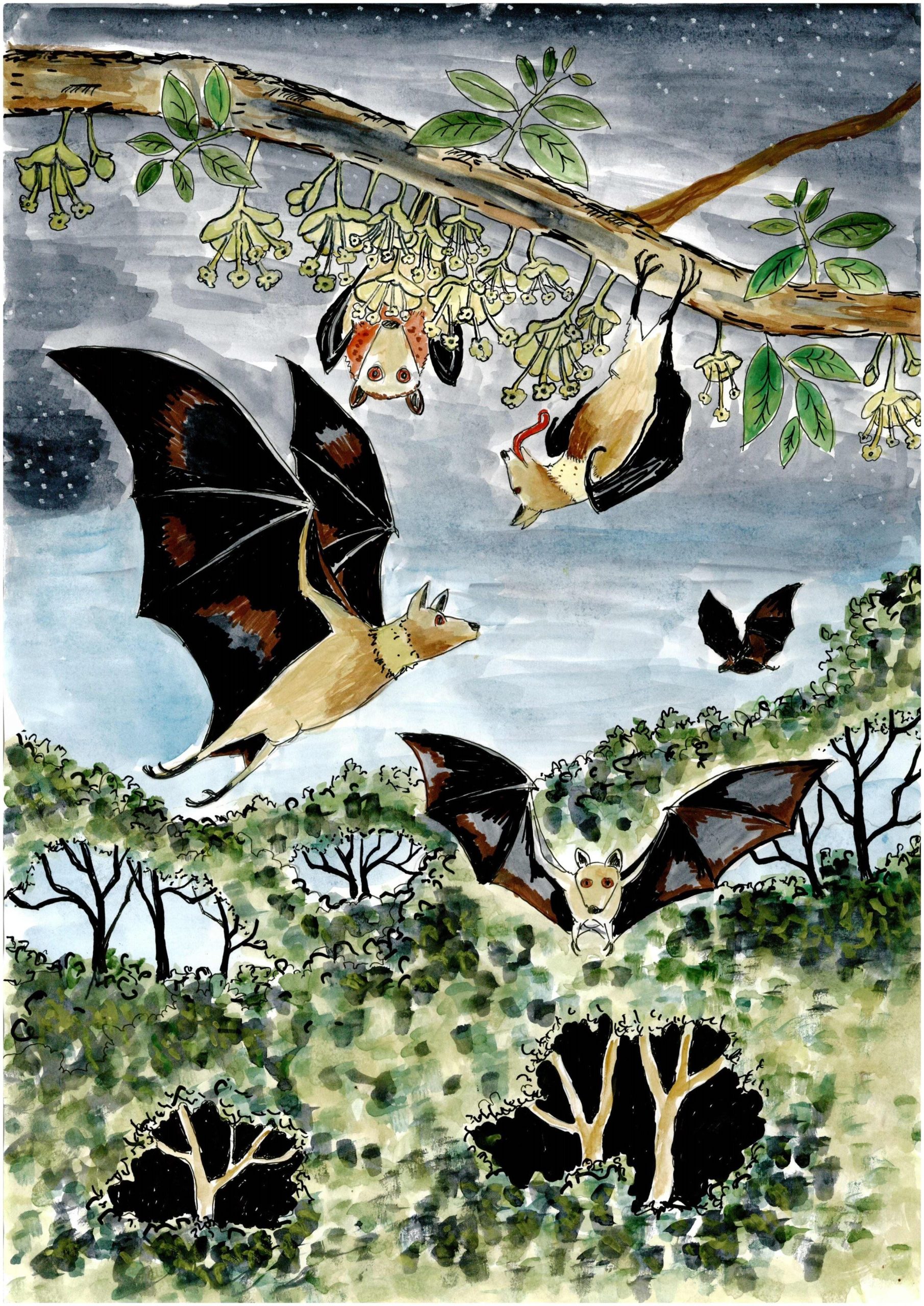
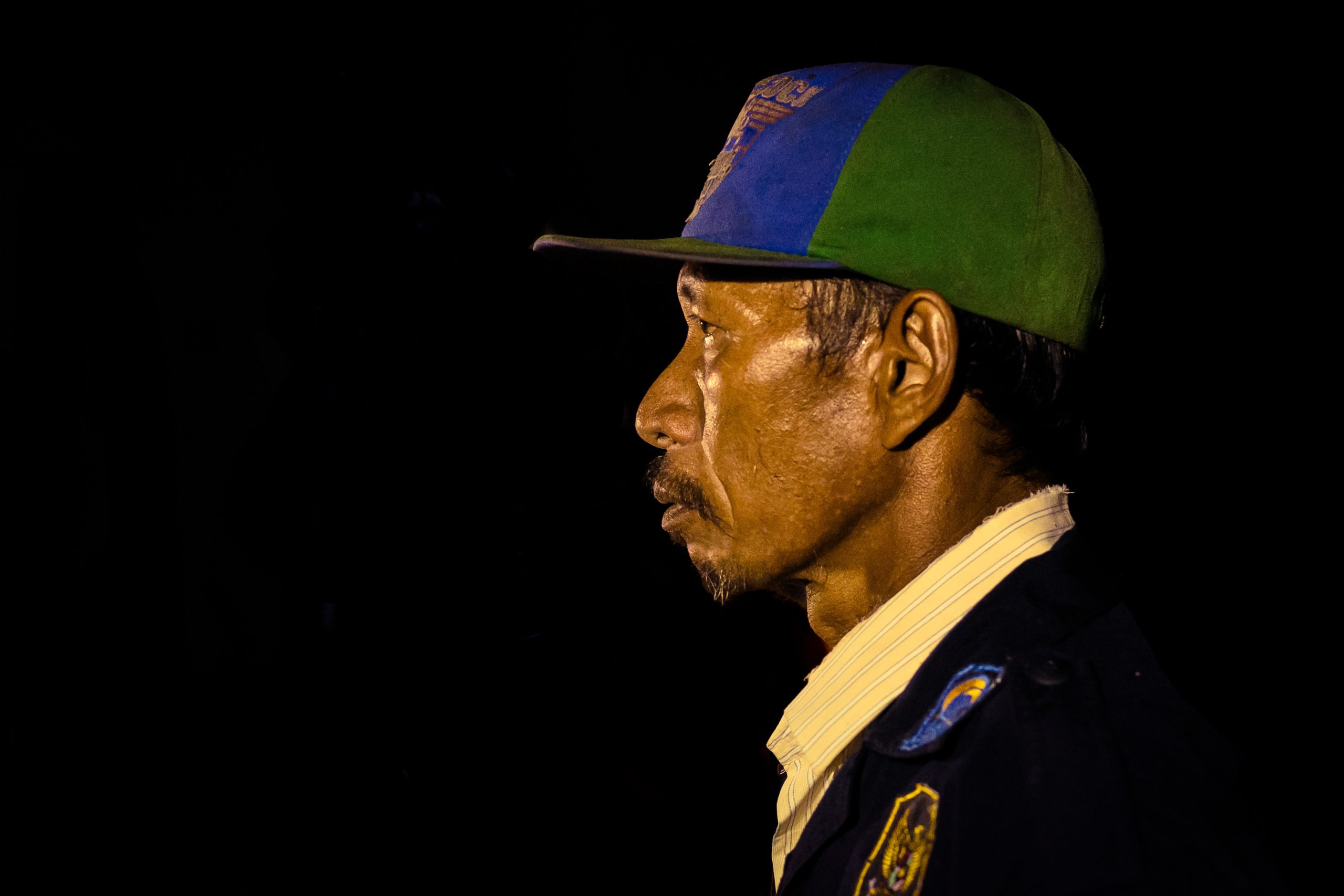
Portraits in Conservation: Pak Warman
Warman Manasai, 54, is a fisherman in Taima village, Tompotika. He and his wife Yati have five children that they have raised in a simple hut on the ocean shore, where they look across at Tangkuladi Island. Tangkuladi serves as a daytime roosting site for thousands of flying foxes, or fruit bats. Bats, when removed from their natural environment—when hunted, stressed, and brought to markets as bushmeat—are believed to have given rise to zoonotic diseases like SARS and Covid-19.
In 2014, working with Warman and his neighbors in the village, AlTo secured a conservation lease protecting Tangkuladi, and all bat hunting ended there. On his own initiative Warman imagined himself as a Tangkuladi bat, and wrote a poem about it.
READ THE FULL STORY AND WARMAN’S BAT POEM HERE
what you can do
You can help support AlTo’s bat conservation efforts.
Please click here to donate to AlTo to help keep bat caves and roost sites safe and build public support for bat conservation.
Be Aware
Be respectful when visiting bats’ homes
Please remember, if visiting caves or other roost sites, move quietly and avoid disturbing the bats, and do not bring food or anything else into or out of caves! If you have previously visited any caves in North America or other locations that might harbor White-Nose Syndrome (WNS), do not bring any clothing or equipment–shoes, cameras, flashlights, backpacks, etc.–that have entered such caves to Indonesia at all! WNS is a highly contagious disease devastating to bats.
Don’t purchase or consume bat meat
In addition, please don’t purchase or eat bat meat from markets in Sulawesi–the bats were likely taken from populations that are currently in steep decline due to unsustainable harvest. Furthermore, consumption of bat meat has been linked to human diseases, such as Covid-19, Nipa virus, and neurological diseases, so it’s safest to avoid eating bats altogether!
